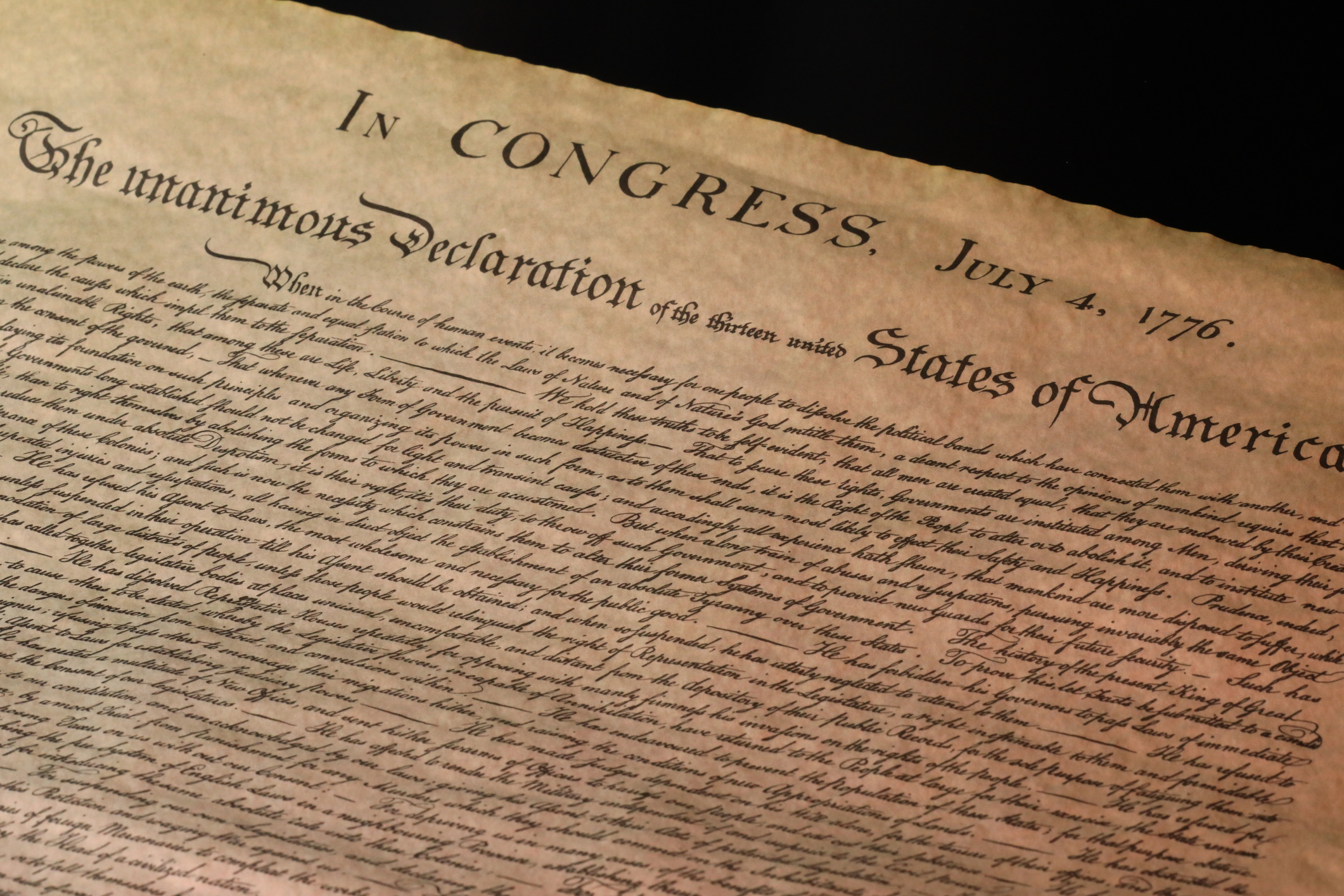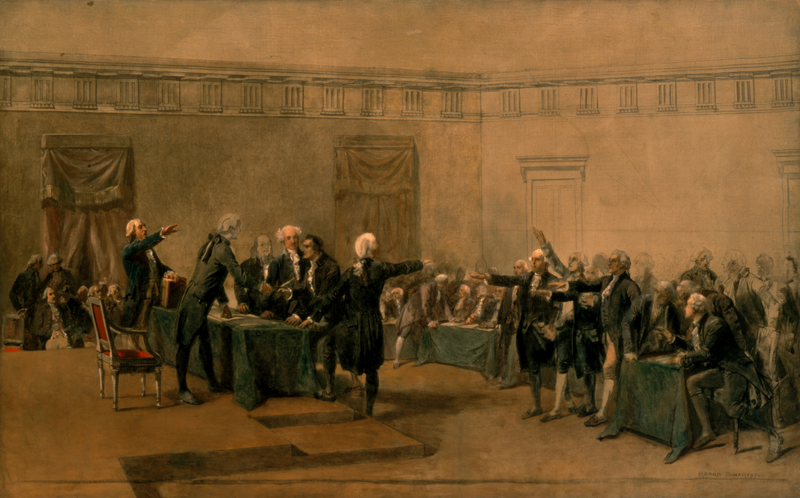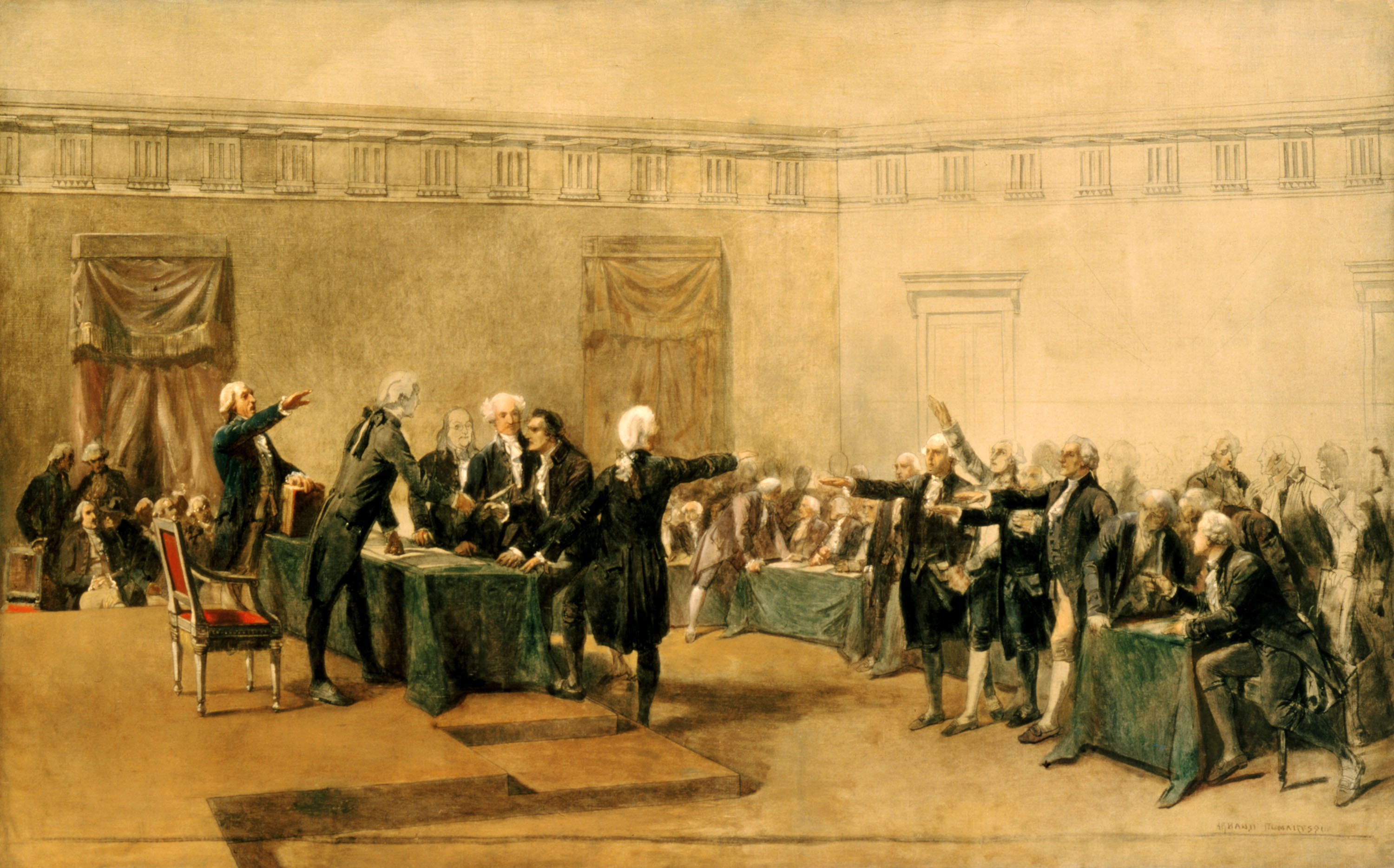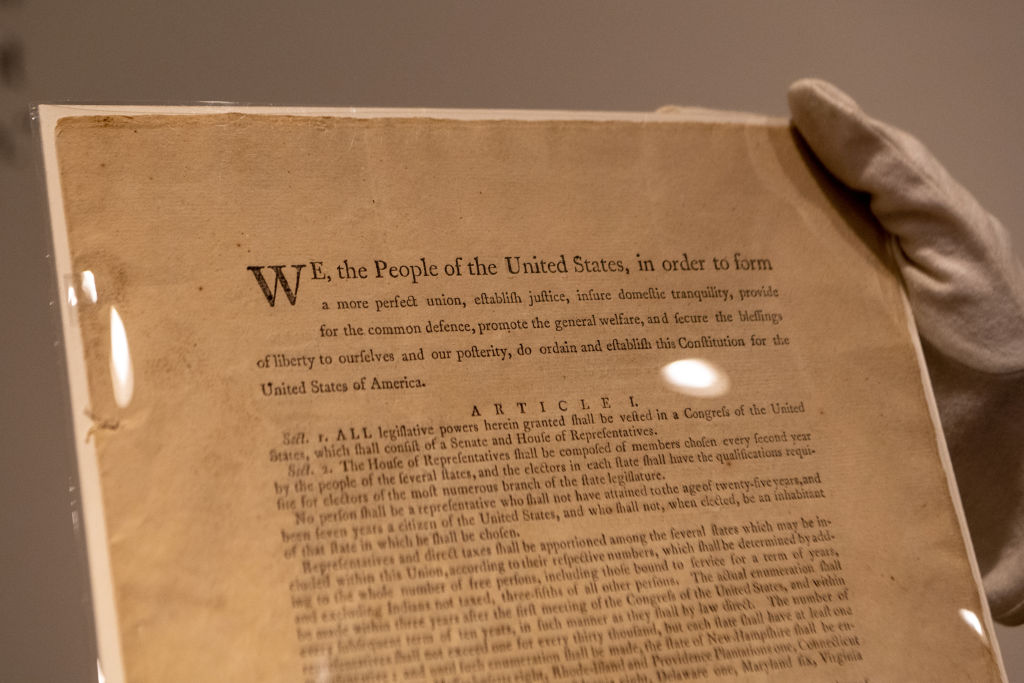A Decent Respect

The American Founding continues to take place in the minds, hearts, and lives of succeeding generations.
The “real American Revolution,” as John Adams said, took place in the minds and hearts of the American people in the years leading up to 1776. This Revolution of thought gave birth to a Revolution of words and deeds; and Revolutionary thought, word, and deed together became the American Founding, a “human event” unsurpassed in the history of the world. With the aid of the Divine source of all blessings, this Founding remains eternally the earthly source of all America’s blessings of liberty. It is also America’s eternal earthly measure of itself.
There will be Americans in the world so long as the American Founding continues to take place in the minds, hearts, and lives of succeeding generations. The wisdom, justice, courage, and moderation of the Founders, and of the great tradition they drew upon, are always there for us to make our own and apply to our unprecedented circumstances. We have seen great examples of this in the historic decisions of the Supreme Court last week. Careful study of these decisions awakens important parts of the American Founding in the soul.
One small but essential ingredient of that Founding was the thought the Revolutionaries expressed in the Declaration of Independence: that “a decent respect to the opinions of mankind requires that [Americans] should declare the causes which impel them to” their revolution. Declaring the causes of their actions – giving reasons for them – was an act of respect for the opinions of mankind because it treated mankind as if their opinions could respond to reasons. This was a hopeful view of the human condition. It did honor to human nature and imposed expectations on human capacities. It is a respect rising to very high levels in the best Supreme Court opinions.
The first “cause” of the Revolution, and the first one the Revolutionaries respectfully declared, was the self-evident truth that “all men are created equal,” that is, that all men everywhere and at all times possess by nature equal rights to life, liberty, and the pursuit of happiness. To understand the significance of the American Revolution and partake of that Revolution in our lives, it helps to remind ourselves that, when the American Revolutionaries declared this self-evident truth, the idea seemed self-evidently untrue to the hereditary monarchs and hereditary aristocracies of Europe. To the rest of the world, it was simply unheard of.
So America showed its first respect for the opinions of mankind by disagreeing with practically all of them! This took not just wisdom but great courage, and philanthropy. In the same breath, the Revolutionaries told the peoples of the world how they might show greater respect for themselves, by recognizing and asserting the rights of their own humanity. Every self-respecting man or woman would want to govern himself rather than to be treated like a child needing someone else to govern him.
Americans were keenly aware how difficult it would be to live up to the principle they were proclaiming – how heroic and continuous an effort would be required of themselves or any people that aspired to rise to equality. This very difficulty is part of what makes it an act of self-respect and an act of respect to others to invite them to join us in what James Madison called the “honorable determination to rest all our political experiments on the capacity of mankind for self-government.”
Any people that wish to be free, including Americans, have to demonstrate this capacity for themselves, and continue to demonstrate it each generation. America will always be an experiment, an experiment than which nothing could be more beneficial to all concerned or more honorable to human nature, because self-government—the true and real “pursuit of happiness”— requires the active exercise of all the human virtues to the highest degree.
The American experiment claims to be a glorious experiment because it aims, for the first time in human history, to make actual this potential for self-government—this capacity to pursue true happiness for themselves—that we Americans insist human beings have by nature. This is what the Founders meant when they soberly—and by no means arrogantly—reflected on the fact that it seems to have been reserved to “the people of this country, by their conduct and example, to decide the important question, whether societies of men are really capable or not of establishing good government from reflection and choice.”
The greatest respect Americans can show for the opinions of mankind—and the greatest benefit they can bestow upon themselves—is to continue to take responsibility for being the kind of self-governing people we invite all people to be.
Happy Independence Day, and may Americans always be free.
The American Mind presents a range of perspectives. Views are writers’ own and do not necessarily represent those of The Claremont Institute.
The American Mind is a publication of the Claremont Institute, a non-profit 501(c)(3) organization, dedicated to restoring the principles of the American Founding to their rightful, preeminent authority in our national life. Interested in supporting our work? Gifts to the Claremont Institute are tax-deductible.



